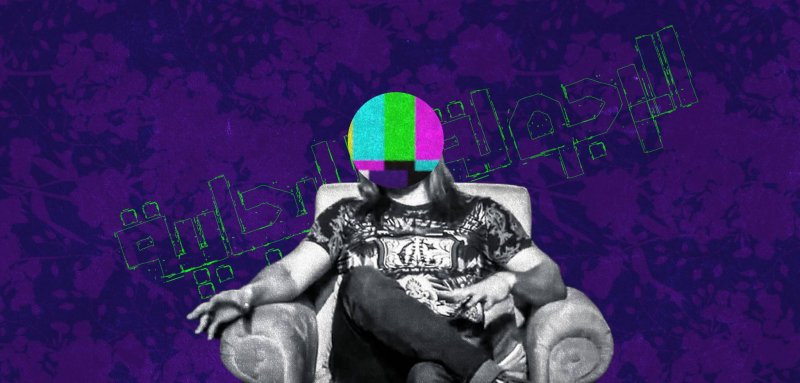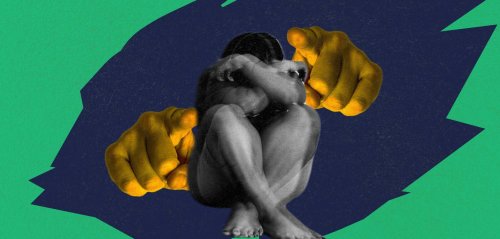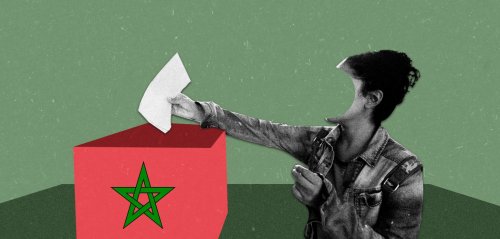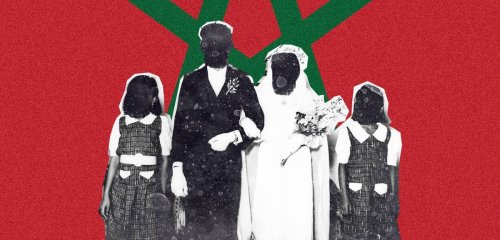"I help my wife do the housework" and "I help my daughter get ready for her day and comb her hair"; With these two phrases, a group of public figures, including artists and journalists, announced their participation in the "Positive Masculinity" campaign in Morocco. The campaign challenging gender stereotypes was launched at the end of March by the Ministry of Solidarity, Social Integration and Family, with the support of the United Nations Population Fund (UNFPA).
Advertisements for men
The meeting, which was attended by a group of public figures, witnessed the showing of a series of "awareness capsules" (awareness advertisements) aimed at dispelling some of the prevailing perceptions and behaviors in Moroccan society, which are mainly related to the set of household chores that are often forced on women. These capsules aim to present a positive image of the roles that men can play by supporting women inside the home or by taking care of children or engaging in other activities that shape the daily lives they share.
In her statement to the media, Minister of Solidarity, Social Integration and Family, Awatif Hayyar said, "Choosing the topic of positive masculinity stem from the premise that reducing the phenomenon of violence against women involves all members of society, male and female alike. This meeting represents a call to urge men to engage in combating violence against women and promote the concept of positive masculinity among them and younger boys in order to achieve gender equality and encourage men to contribute to efforts aimed at reducing gender-based violence and raising awareness in society about the positive roles that men and boys play in achieving gender equality."
The terms "positive masculinity" or "healthy masculinity" are used to indicate that improving the status of women, combating violence against women, and promoting gender equality are not a cause or issue for women alone, but rather also require the involvement of men and a focus on the positive and fundamental role they should play in supporting women's issues and helping them overcome all forms of violence, discrimination and exploitation.
Support and the "Red Pill" movement
Social media platforms have become a large playground where everyone confronts each other on every issue. The positive masculinity campaign announced by the Ministry of Solidarity, Social Integration and Family has sparked great controversy and debate.There are those who supported the idea, seeing it as the first step in the road towards correcting the toxic ideas that spread within families, and towards reducing some of the symbolic violence practiced against women. It is precisely from this point that opponents build their opinion. A large part of the comments and videos interacting with the campaign were opposed to the ideas it came up with.
There are those who supported the idea, seeing it as the first step in the road towards correcting the toxic ideas that spread within the family
These people see that it is normal for a woman to do all the housework, claiming it is more natural and is innate behavior for the female gender.
The problem with this group, then, in relation to the campaign, manifests itself in their perception of persistent efforts to "feminize men" and change roles within the family, which for them is a danger that must be addressed.
This position has been adopted in a radical way by some young men influenced by the "Red Pill" movement, a trend that emerged in traditional, conservative Western circles before it began to echo in the Arab world. They see this campaign, which aims to promote and consolidate the values of equality between men and women, as a feminist ideology at the expense of men, threatens them, and perpetuates q discourse of victimization adopted by feminists. The members of the "Red Pill" movement see all of this as a great conspiracy against them and against privileges that they see as part of their natural rights.
Another group criticized the positive masculinity campaign, with justifications far removed from the previous convictions and ideas, as some considered the launch of this campaign "a luxury that Moroccan society does not need, especially in the current situation", and that Moroccans face "bigger and more complex" problems, as they put it, mainly the unprecedented wave of high prices that affected everything.
Just and fair?
The campaign led by the ministry, and the discussion it sparked within the digital space, on the other hand, left other reactions parallel to all these opinions, but this time in a satirical and comical way, by distorting the issue and turning it into a topic dominated by ridicule and mockery through "memes" and derisive posts that were widely spread on most active Facebook pages and groups.
In this regard, sociologist Yassine Bouchouar tells Raseef22 that "a large segment of Moroccan society is interacting for the first time with this concept on a wide scale, and the mocking interaction that met this campaign on social media is due to the nature of the awareness links that the Moroccan citizen was introduced to this concept through. They were not successful at all and do not communicate effectively with the nature of the culture of the Moroccan family, leading to a rift in public reception and resulting in sarcastic and dismissive reactions."
Many men interacting with the campaign were opposed to the progressive ideas it came up with, claiming it is part of wider efforts to "feminize men" and change roles within the family, which for them is a danger that must be addressed
"These announcements that accompanied the campaign were based on unrealistic details and employed language and vocabulary that are far removed from the Moroccan reality," Bouchouar says.
"It is true that the concept refers to a primarily family cultural pattern or practice, in which men become believers in issues of equality between men and women. However, the mistake made by the ministry was employing this concept directly and confrontationally without having an intermediary that would facilitate the process of integrating it into the cultural environment of Moroccan society," he adds.
The researcher stresses the importance of such programs, especially in the aspect of family relations and thinking about strengthening relationships between members of the same family, between men and women, and between children, especially since official numbers and statistics have become shocking.
He concludes that the program is important in principle in terms of equality and reducing domestic violence, but at the same time it needs more attention in the communicative aspect to achieve the objectives of the campaign in a way that is consistent with the cultural and environmental mentality of Moroccan society.
Is it much more complex?
Between support, opposition and ridicule, there were parallel reactions whose main problem was with the terms used. The campaign was originally launched under the name "positive manliness", and has come under fire for the use of the word. Therefore, in their view, it is necessary to work on the aspect of shaping the correct concepts and terminology, because that is what creates the impact in the beginning, and the impact in the end. Speaking to Raseef22, feminist activist Chaïma al-Maimouni states that "manliness" is a word that carries many meanings and stereotypical images. She is reluctant to call the campaign "positive manliness", since the term "positive masculinity" is what is usually used for such a campaign.
Mindsets cannot be changed through campaigns alone, and the real flaw is a structural one, especially in light of the existence of a criminal law that promotes discrimination and injustice against women
Regarding the fate of the campaign and its impact on the ground, the activist believed that "in the absence of a participatory approach with civil society organizations, political parties, and all progressive forces, this campaign will not achieve any results". Rather, more dangerously, as she put it, it "may cause an opposite reaction and results, as we have seen on social media".
The activist emphasized that "changing mindsets cannot be achieved through campaigns alone," pointing out that "the real problem is a structural one, especially in light of the existence of a 'family code' (law), and the existence of a criminal law that promotes this discrimination and injustice against women and girls, starting with the non-recognition of marital rape, to the marriage of minors and the guardianship of the father over children before and after divorce, as well as inequality in inheritance and unfair judicial rulings in cases of sexual harassment and rape."
Al-Maimouni concludes with stressing that "real change should also involve school curricula and television programs that further perpetuate this unjust culture, whose impact outweighs the impact of all local campaigns, since a campaign alone isn't enough to promote gender equality and fight the patriarchal and male-centric mindset."
Raseef22 is a not for profit entity. Our focus is on quality journalism. Every contribution to the NasRaseef membership goes directly towards journalism production. We stand independent, not accepting corporate sponsorships, sponsored content or political funding.
Support our mission to keep Raseef22 available to all readers by clicking here!
Interested in writing with us? Check our pitch process here!









